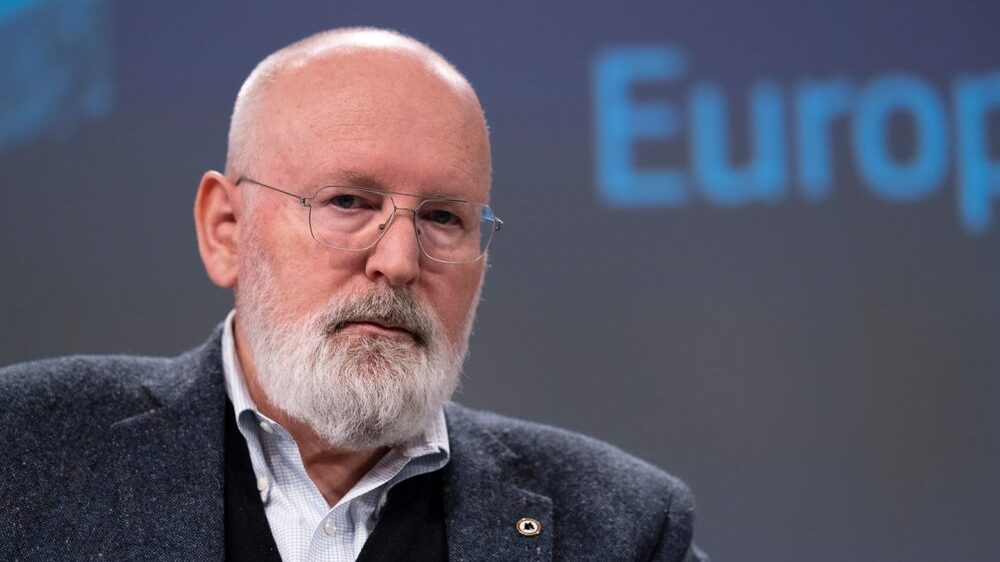
Frans Timmermans.
Photo: Alexandros Michailidis / Shutterstock.com
Frans Timmermans has made it clear he has no intention of letting up on the Green Deal regulations he and his fellow EU commissioners are handing down from headquarters in Brussels, despite recent pushback from both heads of state and EU parliamentarians.
In comments on June 2nd at a conference of the Jacques Delors Institute, he cracked down on recent suggestions that the EU regulatory cascade in the name of saving the environment was drowning European industry. Timmermans is the executive vice president for the Green Deal and commissioner for climate action.
He warned that Europe and the rest of the planet were facing “a risk of ecocide that poses a threat to the survival of humanity,” a situation that required the EU to “recalibrate our institutions.”
“We do not have the luxury of a break. We do not have the time to be paralysed,” he said of combating ‘climate change.’
He also stressed the danger of “closing our eyes to scientific realities,” and cautioned that creating a counter-narrative in the urgency of addressing climate change debate only further incites “culture wars” within the EU.
In a speech on May 11th, French President Emmanuel Macron called for “a European regulatory pause” on the Green Deal.
“We are implementing what we have decided, but we must stop adding to it,” the president said in reference to regulations aimed at meeting targets set in the 2019 plan for reducing carbon emissions and addressing environmental problems.
“The risk we run is, basically, of being the best performers in terms of regulation and the worst performers in terms of financing,” he added.
A couple of weeks later, Belgian Prime Minister Alexander De Croo also said it was time to “hit the pause button.”
He was speaking specifically of the EU’s nature restoration plan.
The EU’s proposed Nature Restoration Regulation sets targets to restore at least 20% of the bloc’s “degraded ecosystems” by 2030, and all such areas by 2050. It includes regulations on agricultural lands that farmers have warned are impossible to meet while still farming the lands.
Belgium is in a similar position as the Netherlands—densely populated and highly industrialised, making it more difficult to meet nature conservation requirements—where farmers have been protesting as they face the threat of closure.
“Is this the right time for these new legislations when our industry is crucial to make the energy transition happen?” the prime minister asked, arguing that Belgium’s industry was needed to accomplish the ecological transition.
He added that “by overburdening people with rules and regulations, we risk losing public support for the green agenda.”
Just days later, the EU Parliament voted to hand the Nature Restoration law back to the Commission.
Timmermans had also told the EU Parliament that the Commission would not be rewriting the regulation, though it seems increasingly likely that it will meet strong resistance in the EU Council as well.
